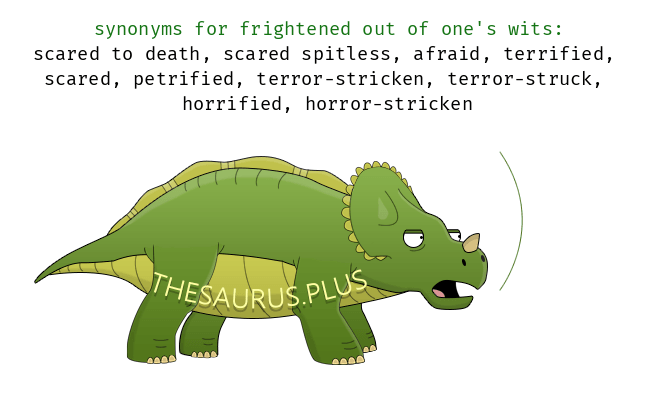
Also, frighten out of one’s wits; scare stiff or silly or to death or the living daylights out of or the pants off. Terrify, make one panic, as in When the lights went out, she was scared out of her wits, or I was scared stiff that I would fail the driver’s test. The first of these hyperbolic terms, scare out of one’s wits, is the oldest and, like silly, suggests one is frightened enough to lose one’s mind. The verb scare dates from about 1200, and out of one’s wits was first recorded in William Tyndale’s translation of the Bible in 1526 (I Corinthians 14:23): “Will they not say that ye are out of your wits?” They were first put together in 1697, the same period from which came scare out of one’s seven senses, a usage now obsolete. The variant using daylights, which sometimes occurs without living, dates from the 1950s. Daylights at one time referred to the eyes but here means “vital organs.” Frighten to death was first recorded in Charles Dickens’s Barnaby Rudge (1840) and scare to death probably appeared about the same time. However, to death used as an intensifier dates from the 1500s. These terms allude to the fact that a sudden fright can precipitate cardiac arrest. Scare stiff, first recorded in 1905, alludes to the temporary paralysis that can accompany intense fear. For the last variant, see also under pants off.
 Liberal Dictionary English Dictionary
Liberal Dictionary English Dictionary